Guests
by Ben Thompson, November 6, 2009 11:23 AM
"If you want a picture of the future, imagine a boot stamping on a human face, forever."—George Orwell, 1984 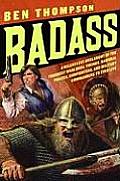 While fighting Nazis in the Spanish Civil War, George Orwell launched a one-man bayonet charge against a Fascist stormtrooper, bombed an enemy rifle position with a heaping dose of high-explosive grenades, survived being shot in the throat by a sniper, and recovered from the somehow-not-fatal wound just in time to escape the country before Soviet spies were able to assassinate him and leave his corpse in an alley somewhere. Do I have your attention? While fighting Nazis in the Spanish Civil War, George Orwell launched a one-man bayonet charge against a Fascist stormtrooper, bombed an enemy rifle position with a heaping dose of high-explosive grenades, survived being shot in the throat by a sniper, and recovered from the somehow-not-fatal wound just in time to escape the country before Soviet spies were able to assassinate him and leave his corpse in an alley somewhere. Do I have your attention?
Born Eric Arthur Blair in India in 1903, Orwell's family returned to the British Isles not long thereafter, and he spent his formative years attending a prestigious school, learning French from a guy named Aldous Huxley, and, like any good misunderstood teenager, getting really interested in writing, history, poetry, and socialism.  He eventually realized that school sucks, and instead of going to college he moved to Burma and joined the Indian Imperial Police because that was way more awesome. He spent the next seven years patrolling the mean streets of Burma, cracking skulls like Dirty Harry and John Shaft, protecting the populace, and keeping the streets clear of hoodlums, vagabonds, ruffians, whippersnappers, and other assorted douchebags. He spent another couple years scratching out a living in London and France, working as a dishwasher, newspaper journalist, and starving artist, and going on frequent expeditions to the slums to see how much being poor sucks goat balls. At some point he decided that he should change his name to "George," of all things, so he did that, too. Why you would want to change your name to George, I have no idea, but there you have it. While cracking street thugs in the kneecaps with a billy club was fun and all, it was when the Spanish Civil War broke out that George Orwell really got a chance to get in there and start kicking some serious asses. George had a pretty spectacular hatred of all things Nazi-related, so when a rag-tag group of democracy-oriented Spanish rebels started trading face-punches with German-backed Fascists, Orwell knew it was time to backflip over to the Iberian Peninsula and put the "crazy" in "democrazy." He volunteered for the infantry, and his experience as a seven-year police veteran helped him easily make Corporal within the first couple months of his tour of duty.  During his adventures, he charged trenches, chased a dude halfway across a field with a bayonet, bombed a rifle position, and, as I said, had a fascist sniper plant a bullet mere millimeters from his carotid artery. Orwell was coughing up a lot of blood (awesome) and very nearly died on the ambulance ride to the field hospital (less awesome), but somehow held it together, recovered, and regained the ability to speak normally. Of course, he probably should have kept that last part under wraps, because pretty much as soon as he was feeling better, he started talking a bunch of trash about the Soviet Union and how Stalin was an assclown and no better than the Fascists (he wasn't — just ask Solzhenitsyn), so of course a team of NKVD agents were sent to apprehend him and beat him senseless with their rock-hard fists. Luckily for Orwell, he was able to sneak on board a train and get the hey out of there before someone put a slug in his face at point-blank range. 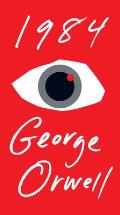 Orwell got home, wrote a story about his adventures in Spain, and took a somewhat less life-threatening job as a book reviewer. Now, it's a well-known fact that being a book reviewer is one of the most noble professions a human being can hope to pursue (particularly when they are giving rave reviews to awesome, hilarious books about great historical badasses... nudge nudge wink wink), and during his career working for a well-known British publication he was known to have reviewed at least 80 different books. Orwell got home, wrote a story about his adventures in Spain, and took a somewhat less life-threatening job as a book reviewer. Now, it's a well-known fact that being a book reviewer is one of the most noble professions a human being can hope to pursue (particularly when they are giving rave reviews to awesome, hilarious books about great historical badasses... nudge nudge wink wink), and during his career working for a well-known British publication he was known to have reviewed at least 80 different books.
When World War II started up a few years later and uber-Nazi jackass Hermann Göring started impaling the British countryside with a seemingly-endless barrage of deadly V2 rockets, Orwell of course immediately ran out and tried to enlist in the army. Unfortunately for G.O., military recruiters aren't particularly keen on bringing on dudes who have already had bullets pass through their tracheas, and Orwell was dismissed out of hand, being declared "unfit for military service of any kind," which seems pretty harsh. So, instead of making more fascist-kabobs with his Enfield bayonet, Orwell worked as a Sergeant in the Home Guard. After the blitz, he wrote for the BBC Eastern Service, where he tried to root out Nazi propaganda in India and Burma. In his spare time, he wrote Animal Farm, a bestselling novel about the horrors of Stalinism that kind of comes across like Charlotte's Web with communists and booze and animals being violently murdered all over the place. Due to Uncle Joe and the USSR being pretty important allies to Britain during the war, Orwell wasn't able to get this thing published until a few months after V-E Day, but he did manage to succeed in his efforts to piss off Communist Russia beyond belief. So that has to count for something. 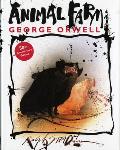 Orwell ran an anti-communist propaganda office for a while, but in 1949 he came down with a terminal and untreatable case of Tuberculosis. On his deathbed, working in a complete delirium, Orwell ended up somehow writing one of the seminal works of dystopian science-fiction — the epic novel Nineteen Eighty-four. Now translated in 65 languages and with millions of copies sold worldwide, 1984 is widely regarded as one of the greatest sci-fi books ever written. The book was responsible for coining dozens of words still used by English-speakers today, showed the dangers of authoritarian regimes, and led the way for badass futuristic totalitarian settings ranging from Logan's Run to Half-Life 2, and this guy did it at a time when he was coughing up his damn lungs, cov Orwell ran an anti-communist propaganda office for a while, but in 1949 he came down with a terminal and untreatable case of Tuberculosis. On his deathbed, working in a complete delirium, Orwell ended up somehow writing one of the seminal works of dystopian science-fiction — the epic novel Nineteen Eighty-four. Now translated in 65 languages and with millions of copies sold worldwide, 1984 is widely regarded as one of the greatest sci-fi books ever written. The book was responsible for coining dozens of words still used by English-speakers today, showed the dangers of authoritarian regimes, and led the way for badass futuristic totalitarian settings ranging from Logan's Run to Half-Life 2, and this guy did it at a time when he was coughing up his damn lungs, cov
|
Guests
by Ben Thompson, November 5, 2009 12:00 PM
"One word of truth will outweigh the whole world"  When you're in a Stalin-era Soviet Gulag, merely managing to haul your ass out of bed, trudge outside into the arctic hell wastes of Siberia in temperatures around 40 degrees below zero and smash frozen, snow-covered rocks apart with a pickaxe for twelve hours a day requires the sort of badass physical and mental fortitude that most people probably couldn't generate if they were being personally pursued by a man-eating bear with a rocket launcher strapped to his back. Surviving that misery for ten long, soul-crushing years, and then going home to write a definitive work on the subject that exposes the horrors of the system to people who had been completely oblivious of it before requires the sort of freeze-proof balls that only Alexander Solzhenitsyn could have possessed. When you're in a Stalin-era Soviet Gulag, merely managing to haul your ass out of bed, trudge outside into the arctic hell wastes of Siberia in temperatures around 40 degrees below zero and smash frozen, snow-covered rocks apart with a pickaxe for twelve hours a day requires the sort of badass physical and mental fortitude that most people probably couldn't generate if they were being personally pursued by a man-eating bear with a rocket launcher strapped to his back. Surviving that misery for ten long, soul-crushing years, and then going home to write a definitive work on the subject that exposes the horrors of the system to people who had been completely oblivious of it before requires the sort of freeze-proof balls that only Alexander Solzhenitsyn could have possessed.

Born in Russia in 1918, Alexander's childhood home became a collective farm after the Soviet Revolution, and he grew up learning about all the great happy fun party time that was Uncle Joe's Magical Exciting Communist Totalitarian Regime of Awesomeness. Solzhenitsyn studied mathematics at Rostov State University, took classes in philosophy, literature, and history, and basically bought into the whole "Soviets Rule, Capitalists Drool" mentality that the USSR seemed to love so much. In fact, Solzhenitsyn was so Pumped for the Proletariat that when Hitler's Fascist punk stormtroopers came kicking in the gates of Moscow with their well-polished jackboots during World War II, young Alex was so psyched about getting to kill Nazis in the face that he went out and joined an artillery regiment in the Red Army. During his tenure as a weapons spotter, sound-ranger, and general exploder of Nazi crotches across Western Russia, Poland, and East Prussia, Solzhenitsyn was promoted to the rank of Captain, and won two awards for rocking ass in battle. Things were going pretty well for Captain Solzhenitsyn — that is, until one day in 1945 when the Soviet Commissariat intercepted a letter Alexander wrote to one of his buddies talking about how Stalin was a grumpy old bearded bastard who didn't really know what the goat cheese he was doing in regards to running the war. 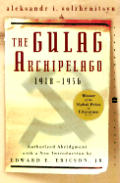 Now, talking smack about your bosses, political leaders, and commanding officers is pretty much standard operating procedure at any gathering of two or more people these days, but back in Soviet Russia you might as well have just founded a revolutionary organization bent on shoving Molotov cocktails up the Proletariat's tailpipe and then jumping off the roof of the Kremlin and elbow-dropping Lenin's exhumed corpse because either way you were a bourgeoisie traitor scumbag worthy only of a right hook to the chops with the Warhammer of Commie Justice. Solzhenitsyn was arrested by the NKVD, convicted of distributing propaganda, and sentenced to 8 years in pound-me-in-the-ass hard-labor camp in Siberia. If you ask me, this seems a little disproportionately harsh, but I guess that's why Stalin never fired me an email requesting my input on the matter. Now, talking smack about your bosses, political leaders, and commanding officers is pretty much standard operating procedure at any gathering of two or more people these days, but back in Soviet Russia you might as well have just founded a revolutionary organization bent on shoving Molotov cocktails up the Proletariat's tailpipe and then jumping off the roof of the Kremlin and elbow-dropping Lenin's exhumed corpse because either way you were a bourgeoisie traitor scumbag worthy only of a right hook to the chops with the Warhammer of Commie Justice. Solzhenitsyn was arrested by the NKVD, convicted of distributing propaganda, and sentenced to 8 years in pound-me-in-the-ass hard-labor camp in Siberia. If you ask me, this seems a little disproportionately harsh, but I guess that's why Stalin never fired me an email requesting my input on the matter.
During 11 years of imprisonment and exile, Solzhenitsyn served in a number of different back-breaking suck camps. He got his ass kicked by weather, brutal work, and even more brutal supervisors on a daily basis, survived a battle with undiagnosed cancer that almost killed him, and wrote a couple of poems and short stories despite the notable handicap that he didn't actually have access to ancillary stuff like paper or pens. I have no idea how he accomplished this… I can't imagine he even composed this stuff by peeing in the snow, because I'm pretty sure that negative-forty is cold enough to flash-freeze urine, so go figure. 
Luckily for the citizenry of Russia, Stalin face-planted a grave in 1956. Solzhenitsyn was freed, returned home, and started writing the politically-charged One Day in the Life of Ivan Denisovich — a super-subversive story about how much it sucked ass to be stuck in a Gulag for like a decade. He somehow managed to get this published in the Soviet Union (no small feat in and of itself) and then started work on his epic piece of dissident literature — The Gulag Archipelago. 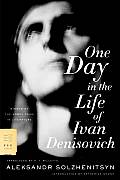 Based on his own experiences, as well as interviews with survivors from the Gulag system, this was the sort of work that could have gotten you arrested, beat up, and imprisoned by the KGB, but Solzhenitsyn didn't give two craps at a rolling donut. He continued work on this, as well as other dangerously-political pieces, and basically told the KGB secret agents tailing him that they could all go fornicate with a revved-up chainsaw. His home was repeatedly raided by KGB agents, he was expelled from the Soviet Union of Writers, and the government started an open campaign determined to slander his name, but none of this garbage slowed him down. When he won the Nobel Prize in Literature in 1970 he couldn't go to Sweden to accept it, he just shrugged and played it cool like the Fonz. Based on his own experiences, as well as interviews with survivors from the Gulag system, this was the sort of work that could have gotten you arrested, beat up, and imprisoned by the KGB, but Solzhenitsyn didn't give two craps at a rolling donut. He continued work on this, as well as other dangerously-political pieces, and basically told the KGB secret agents tailing him that they could all go fornicate with a revved-up chainsaw. His home was repeatedly raided by KGB agents, he was expelled from the Soviet Union of Writers, and the government started an open campaign determined to slander his name, but none of this garbage slowed him down. When he won the Nobel Prize in Literature in 1970 he couldn't go to Sweden to accept it, he just shrugged and played it cool like the Fonz.
Eventually, the Soviets got sick of Solzhenitsyn's bullcrap and in 1974 he was arrested, deported, and stripped of his citizenship. He stopped off to pick up his Nobel before heading to the United States and continuing to work on his various projects. The Gulag Archipelago was eventually published, and now this towering work of literary greatness is required reading in all schools in Russia. Solzhenitsyn eventually returned home after the fall of the USSR, where he spent the rest of his life being a crotchety old man, complaining about the weather, music, the "kids these days," political freedom, and lack of religion, and advocating the reinstatement of the Tsars. But whatever. He died in 2008. Alexander Solzhenitsyn was a crazy bastard who fought Nazis, survived the Gulags, and put together some of the greatest works of dissident literature ever produced by Russia. He didn't give a rat's junk that he was constantly under investigation by some of the world's most all-powerful secret agents, or that the projects he was working on could have resulted in death or imprisonment — he wanted to inform the world of the horrible crap that was going down in the Gulag system, and nothing was going to stand in his way. He emerged from the danger and intrigue on top, and is now regarded as one of 20th century Russia's greatest writers. That's pretty badass. ÷ ÷ ÷ Further Reading: Aikman,
|
Guests
by Ben Thompson, November 4, 2009 1:11 PM
Do what thy manhood bids thee dofrom none but self expect applause; He noblest lives and noblest dies who makes and keeps his self-made laws —Sir Richard Francis Burton, The Kadisah  Captain Sir Richard Francis Burton was a completely crazy nutjob who had more adventures on his way to the bathroom in the middle of the night than most lesser humans manage to cram into a two-week vacation inside the stomach of a still-breathing whale. This author, soldier, adventurer, explorer, geographer, translator, linguist, fencer, duelist, anthropologist, and pretty much anything else you can ever think of –ist spoke a mind-crushing 29 different languages and dialects fluently, wrote 50+ books ranging in content and sanity from travelogues to erotic fiction, explored uncharted lands in India, Africa, and the Middle East, and was the first person to translate the borderline-pornographic content of The Kama Sutra and The Arabian Nights into English. He also had a gnarly attitude, a glorious beard, and a hot temper that drove him to kill more people than a Dirty Harry movie. Captain Sir Richard Francis Burton was a completely crazy nutjob who had more adventures on his way to the bathroom in the middle of the night than most lesser humans manage to cram into a two-week vacation inside the stomach of a still-breathing whale. This author, soldier, adventurer, explorer, geographer, translator, linguist, fencer, duelist, anthropologist, and pretty much anything else you can ever think of –ist spoke a mind-crushing 29 different languages and dialects fluently, wrote 50+ books ranging in content and sanity from travelogues to erotic fiction, explored uncharted lands in India, Africa, and the Middle East, and was the first person to translate the borderline-pornographic content of The Kama Sutra and The Arabian Nights into English. He also had a gnarly attitude, a glorious beard, and a hot temper that drove him to kill more people than a Dirty Harry movie.

Burton was kind of a bastard as a kid, getting into fights all the time and pissing people off all across Western Europe and the British Isles, but he also showed a super-genius aptitude for languages and cultures that can only be described as Indiana Jonesian. So, despite being kind of a crotch-punching punk hooligan, Burton somehow got himself accepted into one of the best colleges in the world — Trinity College at Oxford. At Oxford, R-Burt studied fencing and Arabic, challenged a couple of jackass kids to duels when they talked some bullcrap about his totally bitchin' 'stache, and subsequently got summarily expelled for a combination of drinking, gambling, and challenging people to no-holds-barred back-alley deathmatches. When he left, he made sure to trample the university's flowerbeds with his horse on the way out of town, which kicks ass. Richard's dad bought him a military commission serving in India with the appropriately named British East India Company, and this worked out pretty decently for our homedog RFB. He learned to speak Arabic, Hindi, and a couple other relatively obscure local dialects, studied the customs of the Shi'ite Muslims, was made an honorary Brahmin (the highest caste in their caste system) by some Hindu spiritual leaders, and became the first Westerner to ever achieve the honor of being named a Sufi — a member of the mystical inner circle of Islam. It's probably worth noting that this dude didn't actually practice Hinduism and was not a Muslim, making this achievement roughly equivalent to a non-Catholic tricking the Pope into making him an Archbishop and letting him crash in one of the really nice guest rooms at the Vatican. While in India, Burton also kept some pet monkeys (he even attempted to try to learn their "language" by watching them interact with one another... it didn't work out so well), smoked a lot of opium and pot, briefly worked as a government assassin, and earned the hilariously awesome nickname "Ruffian Dick" because he was always kicking people's asses in duels (and also because he was kind of a dick to people he didn't like). Eventually Burton decided to put his mad crazy skillz as a badass James Bond super-spy to the greatest test he could devise for them. In 1851, he became one of the first (if not the first) European to complete the Hajj — the holy pilgrimage of Islam. He had never been to Mecca or Medina (the two main cities encompassing the ritual journey), knew nothing of the geography, and possessed very little knowledge of the solemn pilgrimage's practices aside from what he had picked up in his days as a Muslim mysticist. Well, it's not like a little thing like "trying to fake out millions of people while blaspheming to the point where you will be arrested or killed on sight if discovered" was going to stop this psychotic Mack Truck of Adventure from being more over-the-top than a Stallone movie about armwrestling cattle. He somehow faked his way through the entire pilgrimage, lived to tell the tale, and his writings on the subject blew up like crazy when they were published back home in the UK . Seeing as how this still wasn't enough adventure for this insane powerhouse of almost being killed by the natives, Burton traveled to Africa in 1854 with the Royal Geographical Society, where he hoped to achieve the modest goal of discovering the source of the Nile River. Before all that, however, Burton decided that he'd so much fun being completely surrounded by people interested in killing him on sight that he dressed up like a native Ethiopian somehow and snuck his way into the Somali capital city of Harar — a place that was forbidden to Westerners on pain of death. Burton left the Geographical Society's camp in Eastern Africa, wandered out into the desert alone, and returned nearly a week later with insane stories of the inner workings of this "lost" city. Oh yeah, while in Africa, Burton also discovered Lake Tanganyika, mapped inland waterways of the Nile and the Congo, charted lost territory in the heart of the Dark Continent, and got a totally gnarly scar on his face when a couple hundred Somali warriors tracked him down and hucked a javelin right into his pie-hole. After whipping nuts in Africa, India, and the Middle East and then going off to write the bestselling novel of his fantastical explorations, Burton finally settled down to a life that involved marginally less threat of painful death on a daily basis. He served as a regional diplomat in Western Africa, Brazil, and the Middle East, yet despite being an ambassador of the Crown, Burton still didn't seem to avoid the whole thing where people were always trying to kill him for some bizarre reason or other. Being chased by tribal warriors was kind of "his thing," kind of like how you can't watch an episode of 24 without Jack grabbing some guy by the collar and screaming "WHERE IS THE BOMB?!" right in his face as loudly as possible. For instance, one time Ruffian Dick was attacked by 200 horsemen sent by the Governor of Syria to assassinate him for some reason I don't remember. I have no idea how he actually got out of that, but I can't imagine it was pretty or civil or didn't involve at least a modicum of neck-stabbing. He also founded the Anthropological Society of London, wrote a bunch of books ranging from a detailed history of swordfighting to an ethnographical work describing orgies in Sub-Saharan Africa and rural India, and was knighted by Queen Victoria. Still controversial and balls-out in his old age, Burton's no-holds-barred writings about sex, drugs, and rock 'n' roll didn't pull any punches and was like the 19th century equivalent of Eric Cartman swearing on prime-time cable television. Burton died in 1890 at the age of 69, which is fitting in a lot of ways. Legend has it that the poison-tongued French enlightenment poet Voltaire built his house directly on the border of France and Switzerland so that when military troops from either side would come to arrest him he could just run across the bo
|
Guests
by Ben Thompson, November 3, 2009 12:07 PM
"Time in its irresistible and ceaseless flow carries along on its flood all created things and drowns them in the depths of obscurity… But the tale of history forms a very strong bulwark against the stream of time, and checks in some measure its irresistible flow, so that, of all things done in it, as many as history has taken over it secures and binds together, and does not allow them to slip away into the abyss of oblivion."—Anna Comnena, The Alexiad 
 Saying that European women had it rough in the Middle Ages is kind of like walking into a burn ward and telling everyone that fire can get kind of hot from time to time. Unless you were really into being married to a stranger by age fourteen, producing an endless stream of hopefully-male children, crippling boredom, and/or dying of some godforsaken incurable plague, the life of the average woman — particularly the nobility — wasn't exactly the medieval equivalent of Xena Warrior Princess decapitating people with a hollowed-out Frisbee and a couple of well-placed face kicks. It was tough, thankless, and didn't offer the kinds of opportunities for career advancement that we've come to expect from equal-rights workplaces these days. Saying that European women had it rough in the Middle Ages is kind of like walking into a burn ward and telling everyone that fire can get kind of hot from time to time. Unless you were really into being married to a stranger by age fourteen, producing an endless stream of hopefully-male children, crippling boredom, and/or dying of some godforsaken incurable plague, the life of the average woman — particularly the nobility — wasn't exactly the medieval equivalent of Xena Warrior Princess decapitating people with a hollowed-out Frisbee and a couple of well-placed face kicks. It was tough, thankless, and didn't offer the kinds of opportunities for career advancement that we've come to expect from equal-rights workplaces these days.
Well the Byzantine Princess Anna Comnena wasn't the sort of kick-ass chick that was going to put up with any of the patriarchal bullcrap that seemed to be flying around all over the place in these days. Born in Constantinople in 1083, the first-born child of Emperor Alexios Comnenos wanted more for herself — she went on to be the first female historian, and now stands as one of the primary and best resources for understanding not only the events of the First Crusade, but also for the inner workings of the Byzantine court in the 11th and 12th centuries. Anna received a decent education, but was forbidden from reading things like classical poetry because the stories were filled with sex and violence and, according to the folks in charge, reading them would have instantly turned her into a murderous harlot who shivved people in the eyes when she wasn't off having affairs, getting addicted to drugs, and producing illegitimate bastard children (parents haven't changed much in the last millennium). Well, the Princess of Byzantium wasn't just going to sit around like some chump when she knew that there were all of these head-crushingly epic violence-and-humping stories stashed a few feet away in the palace library, so she secretly went out and educated herself in the awesome — studying badass crap like history, mythology, religion, poetry, and philosophy and defying cultural conventions by spending most of her spare time hanging out with knights, noblemen, and warriors from across Europe and discussing their violent and ridiculous exploits whipping nuts across the known world. 
Of course, there's only room for so much social mobility when you're an Eastern Roman Princess, and in 1097 the 14 year-old Anna was married off to a war hero/amateur historian known as Nicephorus Bryennius. Obviously, the Emperor wasn't just going to marry his daughter off to just any no-name assclown with a suit of chain mail, and Breyennius, for his part, was actually a pretty hardcore dude in his own right. He was known for his loyalty and devotion to the Empire, and had won some particularly mega mad props from the Imperial Court for his actions in putting down a massive rebellion and personally stabbing the eyes out of the rebel leader's head with a really sharp stick that may or may not have been on fire at the time. Either way, you can be pretty sure this guy wasn't the sort of person you went around playing practical jokes on or anything like that.  Emperor Alexios eventually kicked it in 1118, dying of a moderately-terminal case of what physicians nowadays like to refer to as "being old as hell." To Anna's shock and horror, her kid brother John was appointed to succeed Alex as the ruler of the wealthiest and most powerful empire in the Western world — not her. That was it. There's a reason why the word "Byzantine" is a synonym for backstabbing someone in the ass when they least expect it, and Anna exemplified that perfectly. She and her mother organized a coup designed to overthrow John and install Anna's husband Nicephorus Breyennius on the throne, but unfortunately for the conspirators, Nick didn't have the stones to go through with it — right when the slighted Princess was about to seize power as Empress by jamming the pointy end of a serrated dagger into a fleshy section of the emperor, her husband ratted her out as a traitor and had her arrested. I guess Breyennius' unwavering loyalty to his lord is admirable, but Anna seemed to disagree nonetheless. She ran out, cracked Nick in the face with her pimp-slapping hand, kneed him in the junk, and told him that apparently they had "mistaken their sexes" (which, as we all know, is the eloquent medieval way of calling someone a total pussy). I guess we know who wore the pants in that family. When Nicephorous got sick and died a few years later while besieging the Turks at Antioch, Anna didn't seem to mind all that much. Emperor Alexios eventually kicked it in 1118, dying of a moderately-terminal case of what physicians nowadays like to refer to as "being old as hell." To Anna's shock and horror, her kid brother John was appointed to succeed Alex as the ruler of the wealthiest and most powerful empire in the Western world — not her. That was it. There's a reason why the word "Byzantine" is a synonym for backstabbing someone in the ass when they least expect it, and Anna exemplified that perfectly. She and her mother organized a coup designed to overthrow John and install Anna's husband Nicephorus Breyennius on the throne, but unfortunately for the conspirators, Nick didn't have the stones to go through with it — right when the slighted Princess was about to seize power as Empress by jamming the pointy end of a serrated dagger into a fleshy section of the emperor, her husband ratted her out as a traitor and had her arrested. I guess Breyennius' unwavering loyalty to his lord is admirable, but Anna seemed to disagree nonetheless. She ran out, cracked Nick in the face with her pimp-slapping hand, kneed him in the junk, and told him that apparently they had "mistaken their sexes" (which, as we all know, is the eloquent medieval way of calling someone a total pussy). I guess we know who wore the pants in that family. When Nicephorous got sick and died a few years later while besieging the Turks at Antioch, Anna didn't seem to mind all that much.
Rather than having his power-hungry sister executed for treason and attempted backstabbery, John forced her to become a nun instead (this was almost as painful). Never one to fade into obscurity just because her douchebag brother suddenly forced her to become holy, Anna put her 30 years in the nunnery to good use — she sat down and wrote, by hand, the definitive work on the history of her father's court — the Alexiad. 
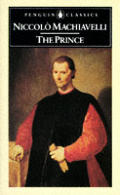 The fifteen-volume work provides a unique first-hand account of the First Crusade, and some of the descriptions of badass weapons and tactics utilized by the Crusader knights Anna met have proven invaluable to anybody who attempts to study that particular stretch of time. It is the only surviving first-hand account of the Crusades from a Byzantine standpoint, as the Empire in Constantinople attempted to deal with the influx of six money-grubbing mercenary armies into their land. Anna, for her part, makes sure to tell the stories as badass as possible, spending pretty much every spare moment using venomous language to talk about how the Crusaders were godless, power-hungry barbarian thugs who were total suckbags and were, in her words, "nursed and nourished by manifold Evil." She writes a glowing review of her father's work, The fifteen-volume work provides a unique first-hand account of the First Crusade, and some of the descriptions of badass weapons and tactics utilized by the Crusader knights Anna met have proven invaluable to anybody who attempts to study that particular stretch of time. It is the only surviving first-hand account of the Crusades from a Byzantine standpoint, as the Empire in Constantinople attempted to deal with the influx of six money-grubbing mercenary armies into their land. Anna, for her part, makes sure to tell the stories as badass as possible, spending pretty much every spare moment using venomous language to talk about how the Crusaders were godless, power-hungry barbarian thugs who were total suckbags and were, in her words, "nursed and nourished by manifold Evil." She writes a glowing review of her father's work,
|
Guests
by Ben Thompson, November 2, 2009 1:15 PM
When most people think about Classical Athens, three things come to mind — insane Greek tragedies so face-meltingly heart-wrenching that they make you want to...
|